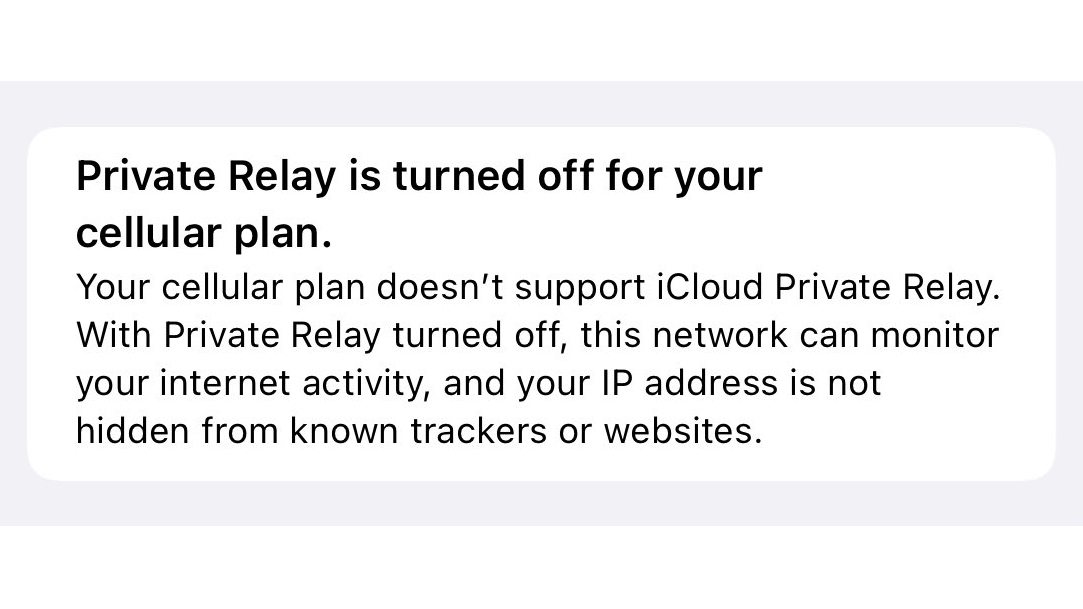Apple's App Store now allows unlisted apps
Businesses are invited to make their limited-audience apps available only through a direct link


Apple has launched a feature for developers that facilitates the publication of apps for "limited audiences" to its App Store on an unlisted basis.
The new app distribution service is targeting the business and education sectors specifically, and unlisted apps will not appear in the App Store under any categories, recommendations, charts, search results, or other listings.
Possible use cases Apple suggested were apps built specifically for organisations, special events such as a corporate party or conference, research studies, or other employee resources. Feasibly, the feature would also be useful for businesses running remote workforces, but require business or sector-specific software on their staff's personal devices.
In addition to direct links, apps can also be accessed and distributed via Apple Business Manager - Apple's proprietary mobile device management (MDM) solution for businesses running Apple products, or Apple School Manager - its equivalent for the education sector.
Developers who have apps already approved and listed for public download on the App Store, and those whose apps have not previously been approved, can simply submit a request form to Apple which will then send them a link to their unlisted app.
Businesses who already have their app approved for private downloads in Apple Business Manager or Apple School Manager will need to re-submit their binary in a new app record within App Store Connect, and set the distribution method to 'public' before completing the request form. If approved, the app will be visibly shifted to an unlisted app within App Store Connect and developers can continue updating the app according to the normal app release process.
Apps that have previously been made public will keep the same unlisted direct link as they did when they were public but developers also have the option of converting the link via a URL shortener.
Sign up today and you will receive a free copy of our Future Focus 2025 report - the leading guidance on AI, cybersecurity and other IT challenges as per 700+ senior executives
Apple recommends "implementing a mechanism within your app to prevent unauthorised use" as although the app won't be publicly searchable, the direct link could still be shared with unwanted audiences.
RELATED RESOURCE

Apple has had a similar private app distribution policy as part of its Apple Developer Enterprise Programme for a number of years now. Eligibility requirements include: developer houses to have more than 100 employees in the business, have systems in place to ensure only employees can download the app, and be legal operation, among others.
The programme was eventually abused by rogue developers as a way to distribute malicious apps or apps that otherwise violate the App Store policies. Illicit app stores were built to distribute such apps and Facebook was one of the higher-profile abusers of the feature, marketing a data-gathering app masquerading as a VPN in just one small branch of the much wider Cambridge Analytica scandal.

Connor Jones has been at the forefront of global cyber security news coverage for the past few years, breaking developments on major stories such as LockBit’s ransomware attack on Royal Mail International, and many others. He has also made sporadic appearances on the ITPro Podcast discussing topics from home desk setups all the way to hacking systems using prosthetic limbs. He has a master’s degree in Magazine Journalism from the University of Sheffield, and has previously written for the likes of Red Bull Esports and UNILAD tech during his career that started in 2015.
-
 The modern workplace: Standardizing collaboration for the enterprise IT leader
The modern workplace: Standardizing collaboration for the enterprise IT leaderHow Barco ClickShare Hub is redefining the meeting room
-
 Interim CISA chief uploaded sensitive documents to a public version of ChatGPT
Interim CISA chief uploaded sensitive documents to a public version of ChatGPTNews The incident at CISA raises yet more concerns about the rise of ‘shadow AI’ and data protection risks
-
 CEOs want AI in everything, but software engineers are pushing back – extensive application upgrades are a becoming a huge 'paint point' for teams
CEOs want AI in everything, but software engineers are pushing back – extensive application upgrades are a becoming a huge 'paint point' for teamsNews Demands to embed AI within applications are becoming a huge "pain point" for software engineering teams, new research shows.
-
 CISOs take the back seat as dev teams claim responsibility for application security
CISOs take the back seat as dev teams claim responsibility for application securityNews Development and engineering teams are steering security and budget strategies
-
 Build modern applications on AWS
Build modern applications on AWSWhitepaper Manage less. Build fast. Innovate more.
-
 SAP's $7.7 billion Qualtrics sale branded a “win-win” situation
SAP's $7.7 billion Qualtrics sale branded a “win-win” situationNews The German software company has sold its 71% stake in Qualtrics which will see the company go private once again
-
 Google cracks down on murky data usage policies from app developers
Google cracks down on murky data usage policies from app developersNews Android developers have been given a July deadline to ensure they comply with Google's new app transparency rules on the Play Store
-
 Global enterprise application market to hit $468 billion by 2027
Global enterprise application market to hit $468 billion by 2027News Microsoft, Oracle, IBM, and SAP are among the top vendors influencing the market
-
 Mobile operators deny blocking Apple's Private Relay feature
Mobile operators deny blocking Apple's Private Relay featureNews T-Mobile says users were unable to access the VPN-like feature due to a fault in iOS 15.2
-
 Microsoft 365 prices to soar by 20% for pay monthly subscribers
Microsoft 365 prices to soar by 20% for pay monthly subscribersNews The move has sparked anger in the partner community with many feeling the decision benefits only the largest resellers